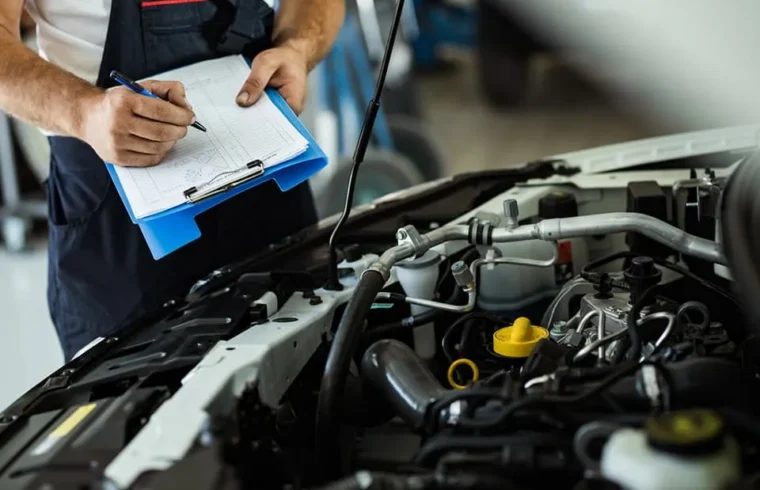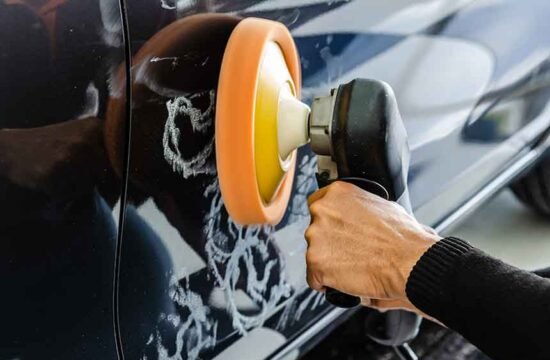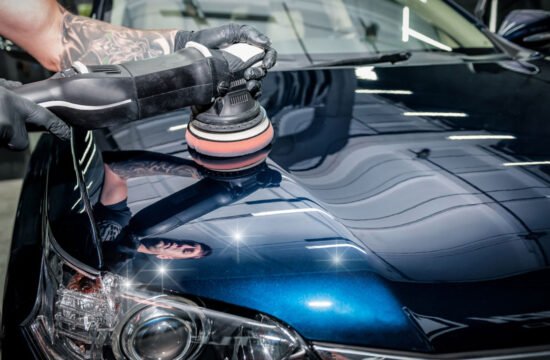Vehicle inspections are a crucial part of vehicle maintenance that ensure your car remains safe and reliable on the road. These inspections involve a thorough check of various components of your vehicle to make sure they are functioning correctly and meet safety standards. Regular inspections help prevent breakdowns and extend the lifespan of your vehicle. They also play a significant role in identifying potential issues before they become serious problems, saving you from costly repairs in the future. By staying on top of vehicle inspections, you ensure not only your safety but also the safety of others on the road.
What is a Vehicle Inspection?
Definition and Purpose
A vehicle inspection is a detailed assessment of your car’s condition, focusing on its safety and performance. During an inspection, a qualified mechanic examines various systems and components of your vehicle to ensure they are in good working order. The primary purpose of these inspections is to identify any issues that could compromise the safety and reliability of your vehicle. This process helps to ensure that all critical functions, such as brakes, lights, and steering, are operating correctly, and that your vehicle meets the required standards for roadworthiness.
Types of Vehicle Inspections
There are several types of vehicle inspections, each serving a different purpose. Safety inspections are conducted to verify that essential safety components, like brakes and lights, are functioning properly. Emissions inspections check whether your vehicle meets environmental standards for pollutants. Pre-purchase inspections are performed before buying a used car to assess its overall condition and identify any hidden issues. Each type of inspection addresses specific concerns and helps maintain vehicle safety and performance.
Why Vehicle Inspections are Important
Ensuring Road Safety
Regular vehicle inspections are vital for road safety. They help identify and rectify potential hazards, such as worn-out brakes or faulty lights, before they lead to accidents. Ensuring that your vehicle is in good working condition reduces the risk of breakdowns and increases your safety and that of other road users. By addressing any safety issues promptly, you contribute to a safer driving environment and help prevent accidents caused by vehicle malfunctions.
Preventing Costly Repairs
Regular inspections can save you money in the long run. By detecting issues early, you can address them before they become major problems that require expensive repairs. For instance, a small issue with your engine or transmission can be resolved more affordably if caught early. Regular inspections also help maintain the overall health of your vehicle, reducing the likelihood of unexpected breakdowns and costly emergency repairs.
Meeting Legal Requirements
In many regions, vehicle inspections are legally required. These regulations are in place to ensure that all vehicles on the road meet certain safety and environmental standards. Failing to comply with these requirements can result in fines, penalties, or even having your vehicle impounded. Regular inspections help you stay compliant with local laws and avoid legal troubles associated with non-compliance.
When Should You Have Your Vehicle Inspected?
Recommended Inspection Schedules
The frequency of Vehicle Inspections depends on various factors, including the age of your vehicle and how often you drive it. Generally, it is recommended to have your vehicle inspected at least once a year. However, if you drive a high number of miles or if your vehicle is older, more frequent inspections may be necessary. Following the manufacturer’s recommended inspection schedule is also crucial, as it provides guidelines based on your vehicle’s specific needs.
Factors Influencing Inspection Frequency
Several factors can influence how often you should have your vehicle inspected. High mileage vehicles often require more frequent checks due to increased wear and tear on components. Additionally, if you notice any signs of potential problems, such as strange noises or decreased performance, it’s a good idea to schedule an inspection sooner. Regular maintenance and timely inspections help prevent issues from escalating and ensure your vehicle remains in good condition.
What to Expect During a Vehicle Inspection
Common Checks Performed
During a vehicle inspection, a mechanic will examine several key components to ensure they are functioning properly. Common checks include the brakes, tires, lights, and fluid levels. The mechanic will also inspect the steering, suspension, and exhaust systems. Each of these components plays a crucial role in your vehicle’s safety and performance. A thorough inspection ensures that all these systems are in good working order and identifies any areas that need attention.
How Long an Inspection Typically Takes
The duration of a vehicle inspection can vary depending on the type of inspection and the condition of your vehicle. On average, a standard safety inspection takes about 30 minutes to an hour. More comprehensive inspections, such as pre-purchase checks, may take longer, especially if the mechanic needs to perform additional tests or reviews. It’s a good idea to ask about the estimated time for your specific inspection and plan accordingly.
Preparing Your Vehicle for an Inspection
Basic Maintenance Tips Before an Inspection
Before taking your vehicle in for an inspection, it’s helpful to perform some basic maintenance tasks. Check and top up essential fluids, such as engine oil, coolant, and brake fluid. Ensure that your tires are properly inflated and have adequate tread depth. Also, inspect your lights to make sure they are working correctly. By addressing these minor issues beforehand, you can help ensure a smoother inspection process and avoid potential failures due to easily fixable problems.
Checklist for a Successful Inspection
To prepare for a successful vehicle inspection, create a checklist of items to review. This list should include checking fluid levels, tire condition, and light functionality. Additionally, ensure that your vehicle’s registration and insurance are up to date, as these documents may be required during the inspection. By following a checklist, you can address any issues in advance and improve the likelihood of passing the inspection without any complications.
How to Find a Reliable Inspection Service
Tips for Choosing a Trusted Mechanic or Service Center
Finding a reliable inspection service is essential for ensuring that your vehicle receives a thorough and accurate assessment. Look for service centers with good reputations and positive customer reviews. It’s also beneficial to choose a facility that is certified by relevant automotive organizations, as this indicates a level of professionalism and expertise. Don’t hesitate to ask for recommendations from friends or family, and consider visiting multiple service centers to compare their services and pricing.
What to Look for in an Inspection Report
After your vehicle inspection, you’ll receive a report detailing the findings. Review this report carefully to understand any issues identified and the recommended actions. A comprehensive inspection report should clearly outline any problems found, their severity, and the suggested repairs. Pay attention to any red flags or urgent issues that require immediate attention. A well-detailed report helps you make informed decisions about necessary repairs and maintenance.
What Happens if Your Vehicle Fails an Inspection?
Common Reasons for Failure
If your vehicle fails an inspection, it’s usually due to issues with key safety or performance components. Common reasons for failure include problems with the brakes, exhaust system, lights, or tires. Other issues may involve the suspension, steering, or emissions systems. Understanding the reasons for failure can help you address the specific problems and prepare for a successful re-inspection.
Steps to Take to Address and Correct Issues
If your vehicle fails an inspection, take prompt action to resolve the identified issues. Begin by obtaining a detailed explanation of the problems from the inspection report. Then, seek repairs from a qualified mechanic or service center. Once the necessary repairs are completed, schedule a re-inspection to ensure that your vehicle meets the required standards. Addressing these issues in a timely manner helps ensure your vehicle is safe and compliant with regulations.
Conclusion
Vehicle inspections are a vital aspect of maintaining your vehicle’s safety, performance, and compliance with legal requirements. Regular inspections help prevent breakdowns, save money on repairs, and ensure a safer driving experience. By staying proactive with vehicle maintenance and inspections, you contribute to your safety and that of others on the road. Make sure to follow the recommended inspection schedules and address any issues promptly to keep your vehicle in top condition.








